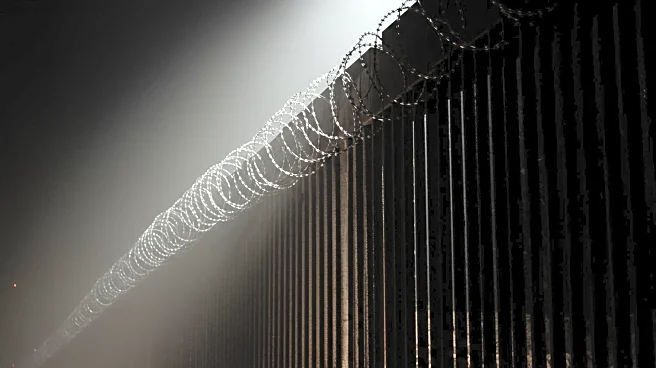What's Happening?
MK Amit Halevi, a member of the Israeli Knesset, has called for Israel to take full control of the Gaza Strip. During a National Security committee meeting, Halevi emphasized the need for comprehensive oversight, particularly in educational materials, which he claims promote violence against Jewish people. Halevi's comments reflect ongoing tensions and security concerns between Israel and Gaza, highlighting the complex dynamics of control and governance in the region. The call for full control suggests a shift from partial measures to a more assertive stance in managing the security and educational narratives within Gaza.
Why It's Important?
The proposal by MK Halevi underscores the persistent security challenges faced by Israel in relation to Gaza. Full control over the region could have significant implications for Israeli-Palestinian relations, potentially escalating tensions or altering the current status quo. For Israel, increased control might enhance security and reduce threats, but it could also lead to international criticism and complicate diplomatic efforts. The educational aspect of Halevi's comments points to broader cultural and ideological conflicts, which could impact future generations and the prospects for peace in the region.
What's Next?
If Israel pursues full control over Gaza, it may face various reactions from international stakeholders, including potential backlash from Palestinian authorities and human rights organizations. The Israeli government would need to navigate complex legal and diplomatic challenges, balancing security needs with international law and humanitarian considerations. The situation could also influence U.S. foreign policy in the Middle East, as the U.S. has historically played a role in mediating Israeli-Palestinian conflicts.
Beyond the Headlines
The call for full control raises ethical questions about sovereignty and the rights of the Palestinian people in Gaza. It also highlights the ongoing struggle over narratives and education, which are crucial in shaping public opinion and future relations between Israelis and Palestinians. The potential for increased control could lead to long-term shifts in the region's political landscape, affecting peace efforts and regional stability.










